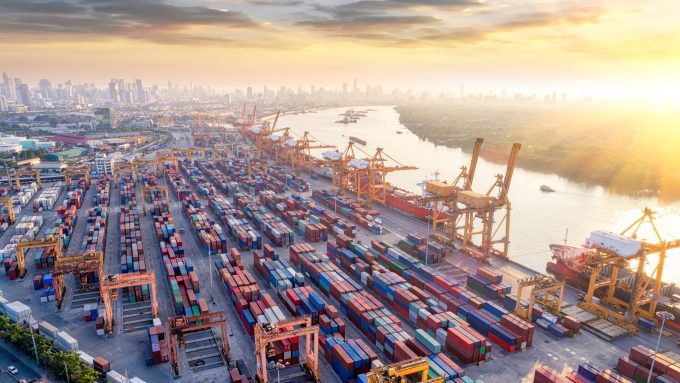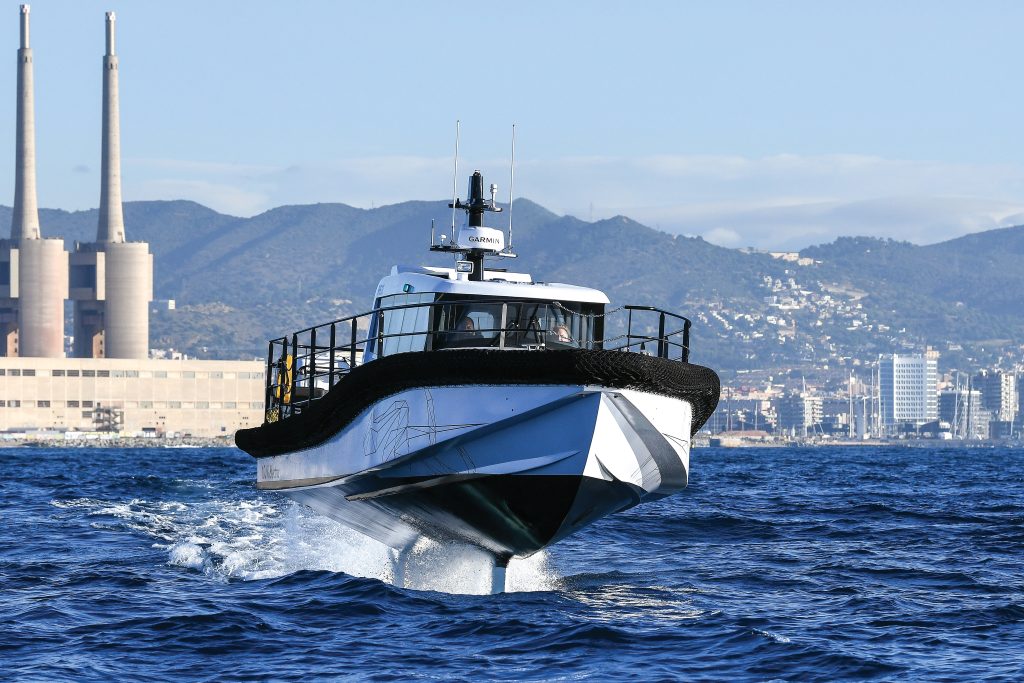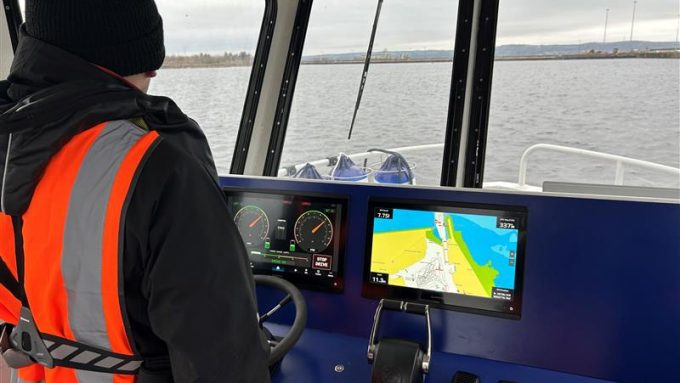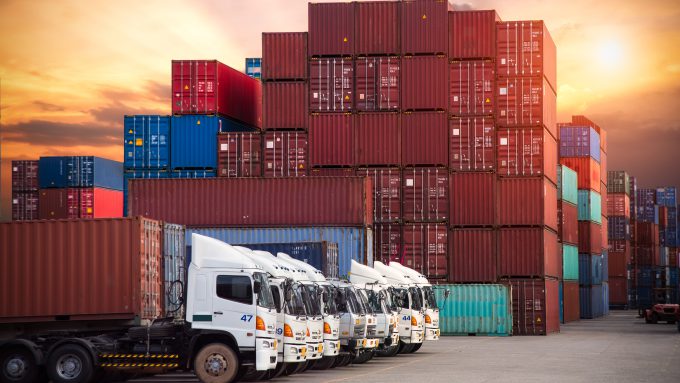
Flying boat promises cleaner and smoother passenger journeys

Dr Iain Percy OBE used to race fast sailing boats powered only by the wind – and won two Olympic gold medals for Team GB at the Sydney and Beijing Olympics. He soon realised there was a commercial opportunity to adapt modern maritime technology to decarbonise passenger ferry services – and improve their reliability when waves are strong.
His company Artemis Technologies has developed an electric propulsion system known as the Artemis eFoiler to propel a high-speed electric ferry. When the ferry picks up the pace, the vessel lifts out of the water so that only the hydrofoils have contact with the water – ensuring a smoother ride, while also reducing drag and the amount of power needed for propulsion in rough seas.
“Under this boat is basically an aeroplane wing fixed to a strut,” he explained from the deck of a small workboat, moored on the River Thames during London International Shipping Week. “As the boat accelerates – just as with an aeroplane on a runway – it eventually has enough speed to take off” – or in this case, rise out of the water.
Dr Iain Percy describes the technology on board the workboat on the Thames
“Fine control of height is achieved by flaps at the back of the wing, which make decisions thousands of times a second to keep the boat on a nice smooth line,” he added. “By reducing drag through choppy seas, the energy requirement of the boat is greatly reduced, and higher speeds can be achieved on battery electric power alone.”
Iain explained that using a hydrofoil to lift the boat out of the water “makes a small boat behave like a super tanker, and become much smoother as it flies above the waves”.
Next step Cornwall
Now the team at Artemis Technologies is exploring the introduction of its Artemis eFoiler technology to a ferry with capacity for 120 passengers on a route between the Isles of Scilly and Cornwall, to allow services to run in rough seas.
It has started working with ferry operator FRS Group, Connected Places Catapult, and the Council of the Isles of Scilly to develop a feasibility study to create a new green shipping corridor between St Mary’s on the islands and Newlyn on the mainland, and hopes to better understand the economic, business and social cases of using the system. The project is funded by the Department for Transport’s Clean Maritime Demonstration Competition; part of the UK Shipping Office for Reducing Emissions (UK SHORE) programme.
The feasibility study will see whether the Artemis EF-24 Passenger ferry using the technology could be deployed every single day, all year round, benefitting locals in the winter and tourists in summer.
“The current service has been going for many years and has served the islands very well,” Iain added. “The idea is for our new service to complement a much larger vessel that, over the winter, only travels every few days. We would be able to take a much smaller boat that offers added comfort.
“Connected Places Catapult offers expertise and knowledge of connecting different forms of transport with populations. One of the other great things about the Catapult Network is it offers an independent assessment of a piece of research, work or collaboration.”Dr Iain Percy OBE, CEO of Artemis Technologies
Connected Places Catapult’s Transport Managing Director, Sameer Savani said: “Maritime is a really important sub sector of transport, which plays a key role in addressing the challenge of decarbonisation. So, it's really important that we develop technologies like this in the UK. Boats like these are really at the vanguard of decarbonising maritime operations.
“The Catapult is working closely with Artemis Technologies and other partners to explore the feasibility of operating vehicles like this,” he added. “It’s really important that economic growth reaches all parts of the UK.”
Find out more about our work in Maritime and Ports.
Read about the activities of Connected Places Catapult at London International Shipping Week.





